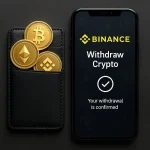Decentralized finance (DeFi) has radically transformed how we interact with cryptocurrencies, but among all DeFi protocols, few have reached the popularity and influence of Uniswap (UNI). If you’ve ever wondered what Uniswap (UNI) is, how it changes crypto trading, and why it’s essential for every crypto enthusiast, this post is your comprehensive guide.
Uniswap: The Pioneer of Decentralized Exchanges
Uniswap is an automated protocol that enables users to swap ERC-20 tokens directly from their wallets, making it a cornerstone of DeFi. Launched in November 2018, Uniswap offers a decentralized and permissionless exchange—meaning anyone can trade without creating an account or relying on intermediaries.
Unlike traditional exchanges, Uniswap uses a unique system called an Automated Market Maker (AMM). Rather than order books, Uniswap pools tokens into smart contracts, called liquidity pools, where prices are determined algorithmically. This allows for instant trades with predictable slippage, regardless of the token’s trading volume.
How Does Uniswap Work?
Uniswap’s brilliance lies in its simplicity. Here’s a quick overview of the process:
- Liquidity Providers deposit equal values of two tokens into a pool.
- Traders interact with the pool, swapping one token for another.
- An algorithm adjusts the pool ratio and determines the price.
- Fees generated from trades are distributed to liquidity providers.
It’s all governed by Ethereum smart contracts, so funds are never held by a third party.
UNI: The Governance Token
Uniswap introduced the UNI token in September 2020, distributing it to both users and protocol stakeholders. UNI holders gain voting rights on protocol upgrades and management decisions. Key features of the UNI token include:
- Decentralized governance: Holders propose and vote on improvements.
- Incentives for liquidity providers: Earn rewards and a say in the platform’s direction.
- Distribution to historical users: Early adopters were rewarded, strengthening the community.
Why Uniswap Stands Out
1. Decentralization
No central party controls Uniswap. Security is based on transparent, auditable code and the Ethereum network.
2. Permissionless Access
Anyone with an Ethereum wallet can trade, provide liquidity, or deploy a new pool.
3. Value to Liquidity Providers
By pooling assets, users earn a share of trading fees, making passive income accessible to anyone without technical expertise.
4. Open Ecosystem
Developers can integrate Uniswap into their projects using open-source tools, fueling DeFi innovation.
Potential Risks and Considerations
With great innovation come new challenges:
– Impairment Loss: Liquidity providers may lose value compared to holding tokens separately.
– Smart Contract Risks: Bugs or vulnerabilities can lead to loss of funds.
– Ethereum Fees: Trading during network congestion can be costly.
Always do your own research and only invest what you can afford to lose.
Getting Started with Crypto: BTCC Exchange
Ready to step into the world of digital assets? If you’re looking for an easy, secure way to buy, sell, or trade crypto, check out BTCC. As a reliable global exchange, BTCC offers:
– An intuitive interface and robust security
– Wide selection of trading pairs, including DeFi tokens like UNI
– Attractive fee structures and promotions
Special Offer: Sign up using the referral code NEWER to unlock exclusive perks for new users! Join via this upgrade link and start your journey securely.
Uniswap FAQs
Q: Is Uniswap better than centralized exchanges?
A: Uniswap offers unparalleled privacy and control, but beginners might find centralized exchanges more familiar and sometimes cheaper for small trades.
Q: Can you lose money on Uniswap?
A: As with any investment, yes. Be mindful of market volatility, slippage, and smart contract risks.
Q: Do I need UNI tokens to use Uniswap?
A: No. UNI is not needed for trading, but holding it gives you governance power in the Uniswap ecosystem.





